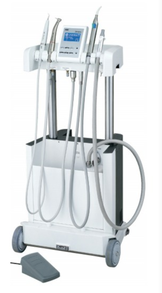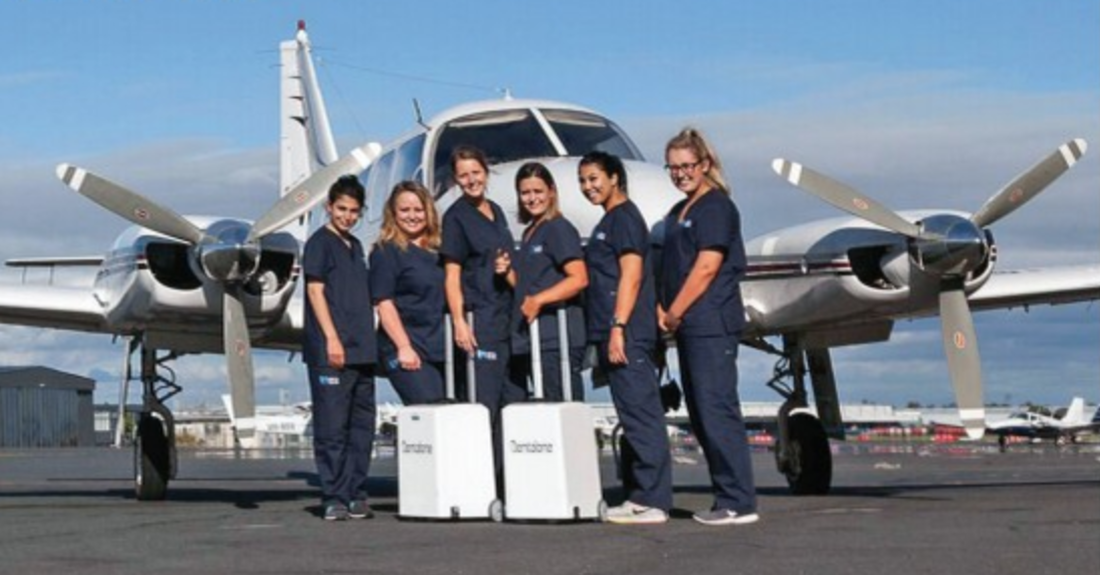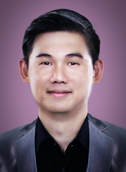 Dentalone: The portable multi-instrument equipment box for dentists
Dentalone: The portable multi-instrument equipment box for dentists By Danny Chan
Imagine how much more exciting and fulfilling your dental work would be if your “clinic” is not confined to the four walls of the surgery but could literally be transported to wherever your expertise is in demand. That was one of the motivations that led Caitlin Wainrib to start a risky business venture in mobile dentistry but as the interview for this article progressed, it soon became clear that it wasn’t the main one.
Resisting well-meaning opposition from family and friends, the gutsy Oral Healthcare Therapist set up Mobile Dental Clinics Australia (MDCA) not simply to free herself from the physical confines of a clinic – though she admits feeling “a little claustrophobic” at times – but in response to a growing realisation that certain demographics were underserviced by dental professionals, particularly that of aged care home residents.
Caitlin felt the dental plight of seniors living in aged care facilities more acutely than most, as it was the subject of her thesis as a Bachelor of Health Sciences undergraduate. The subject got personal when her own grandmother who was in respite care found it “practically impossible” to receive timely or affordable help for a broken tooth, despite her accessible location in Metropolitan Melbourne.
Although the world of mobile dentistry couldn’t have been more distant or foreign at the time, Caitlin was determined to unravel its possibilities from a logical standpoint that “mobile dentistry provided the most straightforward and affordable solution for delivering critical dental services to those who were missing out on them”.
To say that Caitlin made good on her research findings would be an understatement. They practically laid the foundation for a business that grew from a modest three-person team in 2016 to a nation-wide mobile dentistry network that today employs 80 staff, including over 30 dentists. Besides providing convenient and affordable dentistry to aged care facilities – which account for 90% of the work they do – MDCA also delivers much-needed oral care services to schools, workplaces, remote areas, prisons and many more places with limited dental access.
A significant portion of Caitlin’s research was devoted to finding the right type of equipment that could support the rigorous demands of an itinerant dental team. Taking a less trodden path also meant that she couldn’t turn to peers or Internet forums for help when technical issues arose for her mobile-specific dental equipment, hence it was imperative for her to locate a reliable supplier that could provide critical technical support at the drop of a hat. After trying out several products and suppliers, hitting several bumps along the way, the dental entrepreneur says she has found the ideal equipment and supplier in NSK.
The Japanese dental MNC, better known as a high-end handpiece manufacturer, is also the maker of Dentalone. Marketed as “the dentist’s office mobile cart”, Dentalone is created as a portable multi-instrument equipment box for dentists who practice on the go. More specifically, Dentalone caters for operative or preventive dentistry in the field such as humanitarian, home care, schools, army and hospitals.
Inside Dentalone’s compact luggage-like cart, the practitioner has access to a wide range of NSK’s high precision instruments including: Illuminated LCD control panel Multi Pad; autoclavable brushless NLX nano micromotor; integrated multi function ultrasonic scaler Varios170 with LED light; VA2-LUX-HP handpiece; 3-way air/water/spray syringe with LED light; saliva ejector; 500ml water tank; and 1-Litre waste container.
For an outfit like MDCA that on any given day, dispatches eight mobile dental teams to disparate locations with unpredictable weather and work conditions, via various modes of transport (including vans, ferries and planes), Dentalone has proven itself to be a rugged and reliable companion on the road.
“There’s no doubt that we work the (Dentalone) units very hard, pushing it to the limit. For a travelling dental team, we need them to be robust and the instruments must hold up despite the “rumble and tumble” nature of our work,” Caitlin attests.
“The fact that they have “survived” bears testimony to Dentalone’s excellent build quality.”
The MDCA teams are booked solid six months in advance so any last-minute cancellations due to equipment failure would entail huge financial costs plus it’s not as easy or feasible to reschedule patients when the operation sites are not permanent. Facing such stringent demands, the reliability of NSK’s products and support team is not taken for granted, Caitlin stresses:
“In the three years that we’ve been using NSK handpieces, not a single one has broken down and we use more than a hundred units of them. The robustness of these products is critical to the smooth delivery of services that we render on a daily basis.”
In terms of technical support and customer service, Caitlin sums up NSK’s performance in one word: Phenomenal.
“Whenever an equipment breaks down, we get instantaneous response from NSK’s technical team. Where necessary, they will even courier a part to be delivered the next day just to service your product.”
“We have had bad experiences with other suppliers and all I can say is that to compare their ineffectual after-sales support with NSK’s is like comparing apples and oranges – there’s just no comparison whatsoever!”
MDCA is currently trialling a more portable iteration of NSK’s mobile dentistry innovation known as Viva 8. Caitlin says of the nifty lightweight model, tipping the scales at 9.5kg:
“The fact that they are able to pack an entire surgery into a box that only weighs 9.5kg is a marvel, yet we benefit from its practical application every day. When you’ve got young women lugging these carts onto planes and ferries, having to load and unload them, the increased portability is a much appreciated feature.”
Ultimately, whatever improved convenience must be passed on to the patients themselves, Caitlin says, not forgetting the roots of her calling to start MDCA.
The same way the licensed pilot made a point to absorb the costs of flying out to under-serviced locations, she emphasises the need for the business to remain true to its volume-based model: “Make less per patient but see more patients.”
“I believe that if you practice ethically and professionally, success will surely follow. If I had gone into business with expectations of becoming a millionaire, I don’t think I would have derived as much job satisfaction and fulfilment as I have.”



 RSS Feed
RSS Feed
